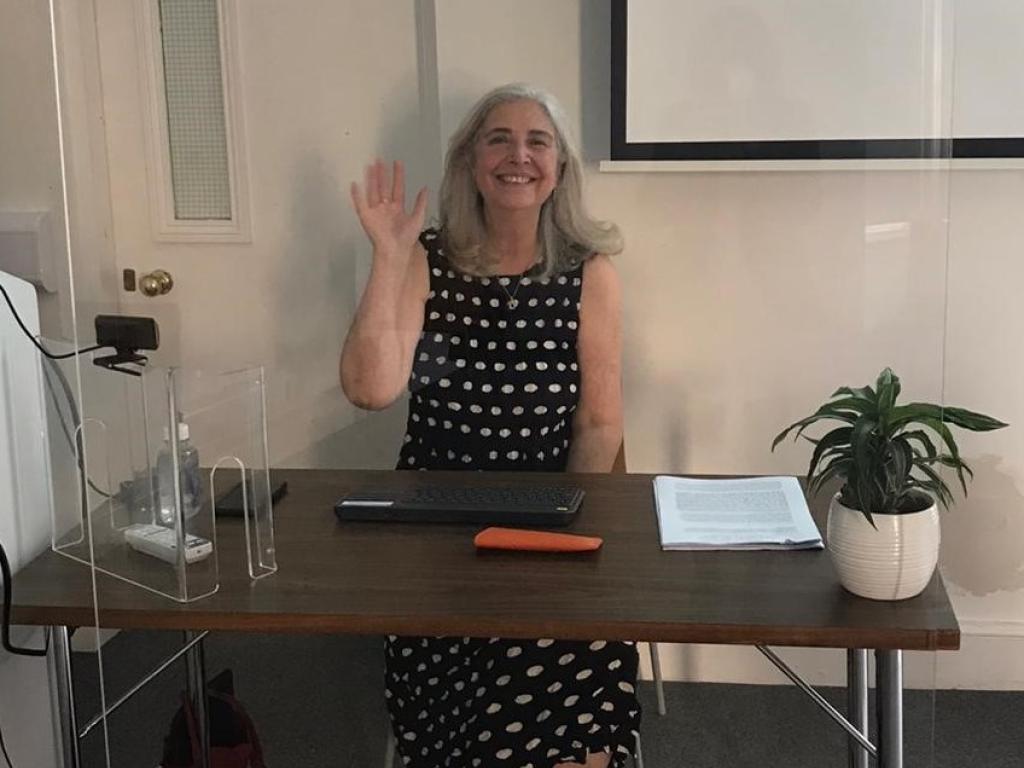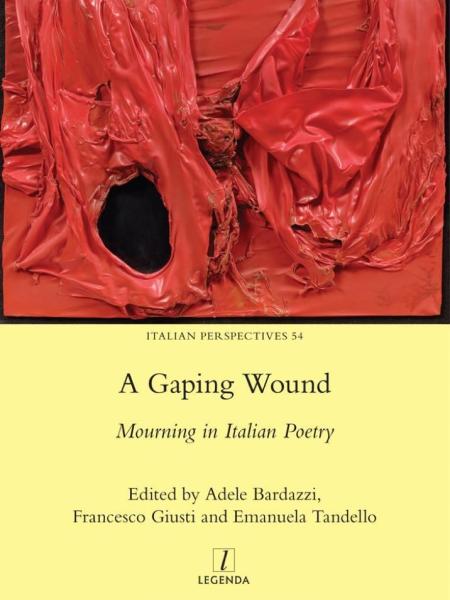
On June 8th 2021, in Lecture Room 1 of 47 Wellington Square, Professor Emanuela Tandello delivered her Valedictory Lecture (‘Mortiferous Poetry’) in front of colleagues, close friends, and a wide, international online audience. Despite necessary social-distancing measures and a restricted, face-covered few allowed to attend in person, the atmosphere could not have been warmer. Professor Tandello’s lecture was the culmination of a three-decade long career of teaching, supervising, and research, and her witty initial remarks put the audience at ease after too-long a period of Zoom meetings and pandemic nerves. ‘When the design of my life is complete’ what ‘will I see, or will others see?’ she started, referring to Cavarero’s story of a man walking at night through a snowy meadow without realising that ‘his footprints had traced the figure of a stork on the ground.’
Although Professor Tandello’s life design continues to be drawn, her lecture certainly hinted at the bigger picture, bringing to the fore interests, themes, and interdisciplinary approaches that have characterised her career.

Professor Tandello engaged with problems of poetics, literary ‘mourning’, and intellectual transformation in the works of Giacomo Leopardi (1798-1837) – the Italian poet and philosopher at the centre of her 2018 research centre Leopardi studies at Oxford –, specifically tackling a hybrid and elusive text (between elegy and self-elegy, poetry and prose, tragedy and comedy, humanistic and scientific cultures, amongst other things) like the Coro di morti (Choir of the Dead) featured in the prose book of the Operette morali. A ‘poetic exception’ – according to Tandello, a necessary one – occurring when Leopardi undergoes a major personal and philosophical crisis, the choir’s ‘mortiferous’ line of ‘singing’ is measured by Tandello against theories of mourning and poetic-physiological rebirth, of genre hybridization and newer writing possibilities, describing a moment of ‘contamination’ able to put former poetics under ‘too much formal strain’ and strategically prepare a ‘risorgimento’ (rebirth) in the later Canti pisano-recanatesi.
These themes and perspectives have accompanied Professor Tandello throughout her years at Oxford, from her interest in Leopardi (leading, in the last five years alone, to international collaborations, a stable series of workshops, and the largest international Leopardi conference to ever occur in the UK) to her life-long work on the genres of lyric poetry and the idea of ‘mourning’. Professor Tandello’s work on the lyric genre and its transformation has put her at the centre of a wide network of Italian poets and writers – like Amelia Rosselli (her works being one of Tandello’s greatest fields of expertise), Franco Scataglini, and Antonella Anedda – and have made her presence at Oxford a unique British-based ‘magnet’ for students from all over the world. As things currently stand, the study of contemporary Italian poetry in the UK will suffer a great loss from Professor Tandello’s retirement. It is difficult to imagine, a more present and intuitive supervisor for young students of poetry coming to Oxford: throughout her career, Professor Tandello supported students in personal growth and career development, tirelessly working towards their inclusion in the life of the Sub-faculty via student-run seminars, lectures, and recurrent reading groups open to staff, graduates, and undergraduates.
Although she finished with a note on ‘Mortiferous Poetry’, Professor Tandello leaves a legacy of intense vitality – a trace more enduring than a stork in the snow.